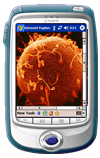The Roman Catholic Church
IVF is not accepted for two reasons - spare embryos are produced, which goes against the sanctity of life; a child should be the result of an act of love:
"Catholic teaching prohibits in vitro fertilization, maintaining that a child has the right to be conceived in the marital embrace of his parents. Human sexuality has two components, the unitive and procreative; IVF separates these components and makes the procreative its only goal." Jim Graves
Fertility treatments are acceptable, only if:
- NO “spare embryos” are created.
- No 3rd parties are used.
- They do not replace the act of sex in creating a child
AI - acceptable, only if the husband’s sperm is used, and results from an act of union (a complicated answer, but basically the couple can have sex and use the ejaculate to artificially inseminate the wife).
AID - not acceptable. AI using a donor is wrong! It brings a 3rd party (another man) into the marriage.
In an address to Catholic doctors, Pope Pius XII condemned AID because a third person becoming involved in a marriage is like "mechanical adultery": the donor fathers a child (with his sperm) yet he has no responsibility to the child; and a process that isolates the sacred act of creating life from the marriage union is a violation of the marriage union (which alone is the way to create life). However, if the marriage act is preserved, then various clinical techniques designed to help create new life are not to be condemned."
Adapted from Modern Catholic Dictionary
"Any use whatsoever of any method that stops the natural power of sex to generate life is forbidden."
Pope Pius XI, 1930
Roman Catholic 1987 Report: “Respect for Human Life and the Dignity of Procreation”
This report gives guidelines for infertility treatment. Main points:
- Loving sexual relationships between husband and wife is the proper place for conceiving children.
- Children are a gift and a blessing from God.Although science makes some things possible, it does not make them right. Research must continue into the causes of infertility, but the morality of these should be carefully considered.
- All humans have the right to life from of conception. Infertility treatments must respect that.
The Church of England
IVF is acceptable in all its forms, including the donation of eggs and sperm by third parties. However, individual Anglicans may decide not to use donor gametes.
"The principle of integrity of family life is accepted but Anglicans will differ as to whether particular practices do or do not in principle undermine these understandings."
Response to consultations on gamete and embryo donation
However, the Church of England has expressed concern at offering fertility treatment to single women and gay couples. When the current law was being discussed, Lady Soultan proposed an amendment to the HFE Bill to prevent single women getting treatment. Her amendment was defeated by only one vote. The Church of England recently said:
Bringing the care of an adoptive home to a needy child is a wholly different circumstance to deciding in advance to use IVF technology to bring into the world a child who will, ‘by design’, never have a father (or mother, in the case gay men commissioning a child by IVF surrogacy). It sends the signal that everyone has a right to a child and this ‘right’ over-rules consideration of that child’s welfare. September 2012
With regard to embryos, the Church teaches that experimenting on “spare” human embryos is acceptable up to 14 days after fertilisation, because up to 14 days a foetus can split into 2 and form twins. Therefore, it is not really a human life until 14 days. (Based on 1984 Report “Human Fertilisation and Embryology”).
"We support the recommendation that research, under license, be permitted on embryos up to 14 days old and agree that embryos should not be created just for scientific research."
Anglican report - 1994
In July 2003. General Synod unanimously carried the following motion:
'That this Synod:
- affirm the sanctity of the human embryo and therefore the need to treat it with profound respect;
- recognise that there are different but principled and sincerely held views among Christians on the morality of embryo research;
Methodist Church
- Believes it is right for scientists to try to learn more about causes and cures of infertility.
- Accepts using “spare” embryos in medical research, but only up to 14 days after fertilisation.
Surrogacy
All Churches agree that surrogacy is wrong because:
- It involves a 3rd party in a much bigger way than donated eggs and sperm.
- It strikes at the heart of the family.
- It can create massive problems for everyone concerned, including the child.
